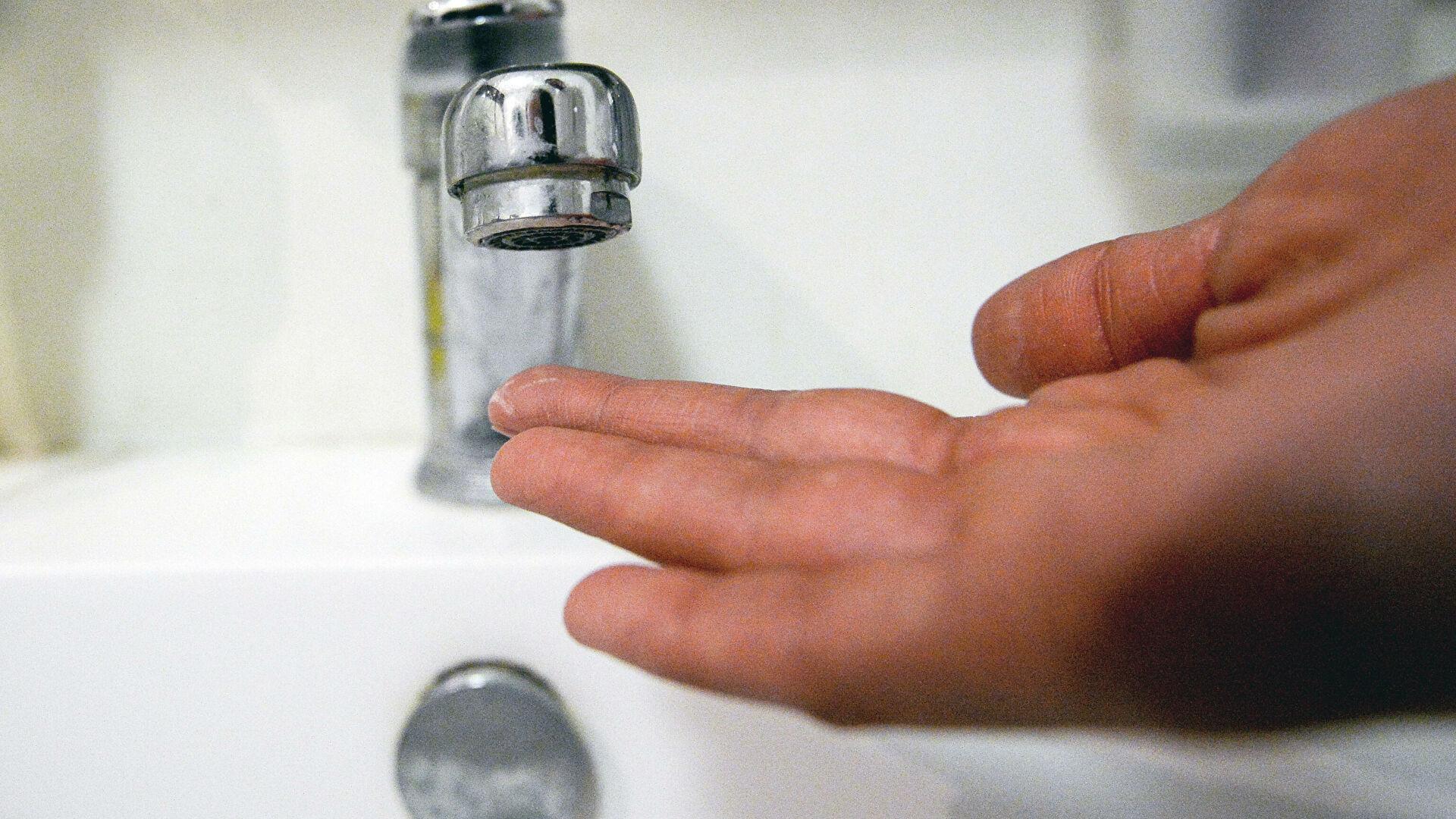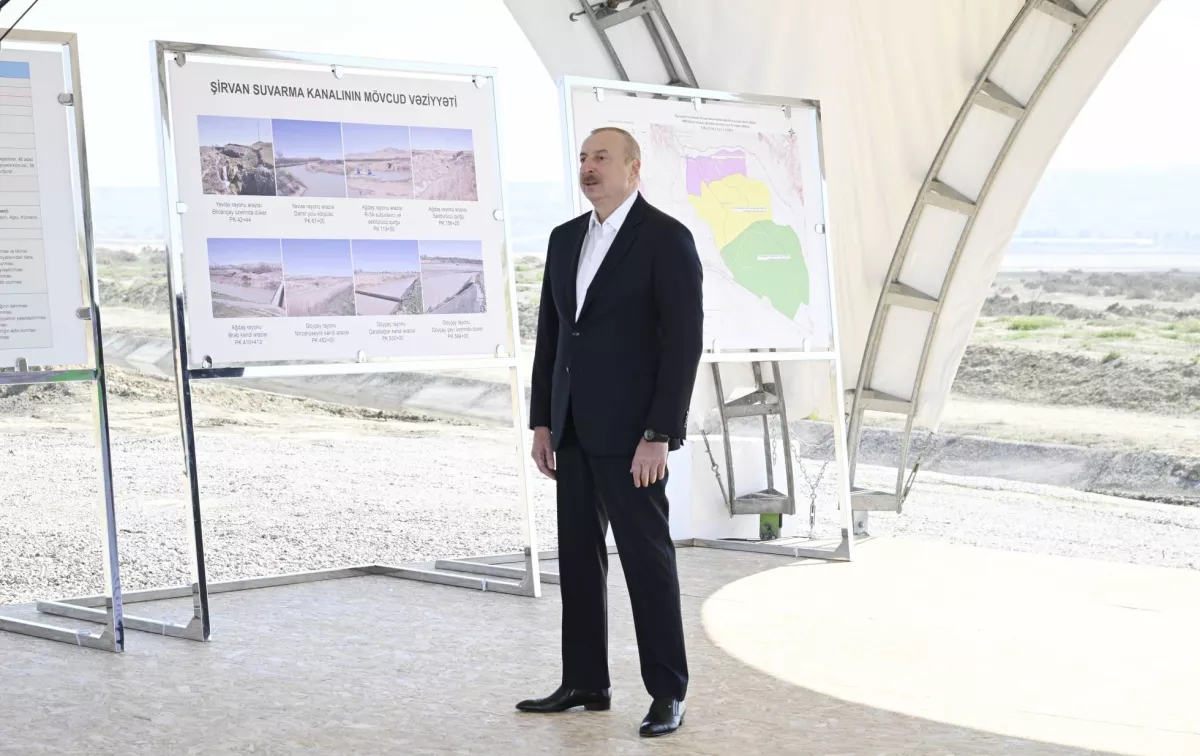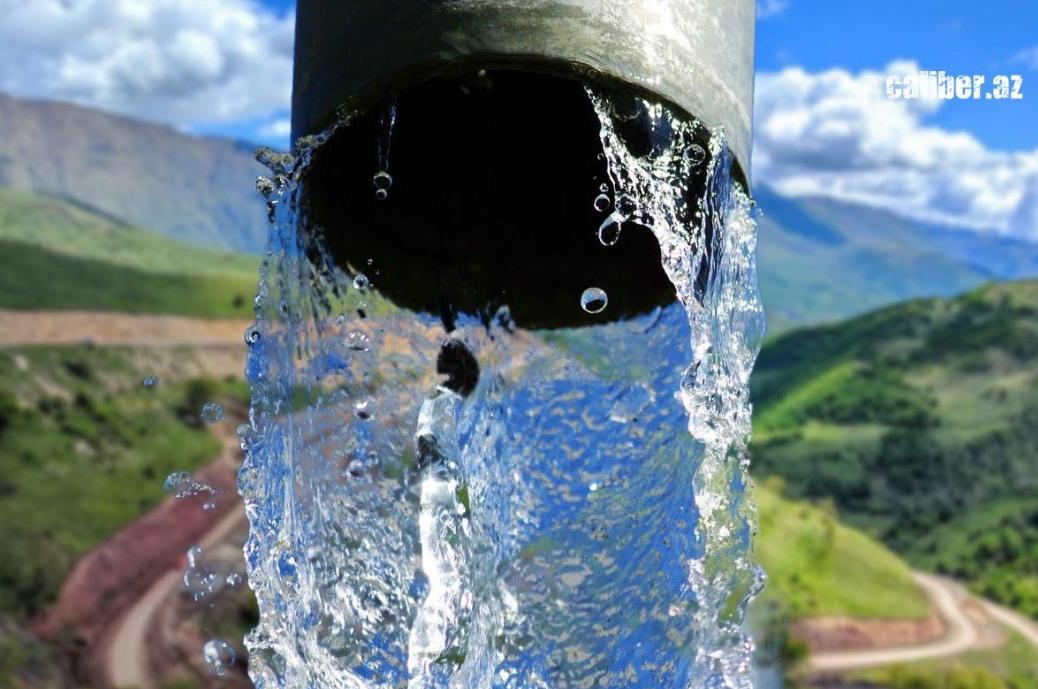Azerbaijan’s Caspian desalination project enters final stage Securing water for the future
The government of Azerbaijan is exploring several alternative projects to supply water to the capital’s metropolitan area. Options under consideration include rainwater harvesting, the reuse of wastewater, and the construction of a desalination plant on the Caspian Sea. For the past two years, discussions have been underway with companies from Israel and Saudi Arabia, as well as with partners at the European Bank for Reconstruction and Development (EBRD).
In February 2024, the Azerbaijani Ministry of Economy began organizing a tender for a reverse osmosis seawater desalination plant in the Sumgayit industrial zone. The Caspian desalination project is approaching the final stages, with the ministry recently opening tender bids to select investors and proceed with construction.
Recent global climate changes have intensified desertification in the South Caucasus, particularly impacting Azerbaijan, where the water balance has declined by at least 15% over the past 20 years. These negative effects have been especially pronounced since 2018, marked by severe droughts and accelerated glacial melting in the Greater and Lesser Caucasus mountains, which has significantly reduced the flow of mountain rivers. During this period, the main transboundary rivers of the region—Kura, Aras, and Samur—have experienced considerable shallowing, influenced not only by global climate effects but also by technogenic and anthropogenic factors, such as excessive water extraction for irrigation and dam construction in neighbouring countries, including Türkiye, Iran, Russia, and Georgia.
Unfortunately, the outlook from experts at the United Nations Food and Agriculture Organization (FAO) is bleak: Azerbaijan is among the 20 countries facing the most severe shortage of irrigation water. Environmental experts predict that due to accelerating desertification, Azerbaijan's freshwater reserves could shrink by an additional 20% by 2050.

In October 2024, Azerbaijan's president approved a National Strategy for the Efficient Use of Water Resources, targeting completion by 2027 to minimize the effects of climate change. A core component of the strategy is leveraging alternative water sources, including wastewater treatment and reuse, rainwater collection and storage, and exploring artificial rain technology. Relevant agencies have been tasked with researching these areas and implementing pilot projects. Another key initiative is the launch of a pilot project to produce freshwater through a seawater desalination plant on the Caspian Sea.
President Ilham Aliyev emphasized the importance of this initiative in mid-April while attending the start of reconstruction on the Shirvan irrigation canal in the Hajigabul district.
“I should also mention another project. Work on this project is underway. This is the Caspian Sea water desalination project. After this project has been implemented, we will use the water of the Caspian Sea for both irrigation and drinking. Several countries of the world have ample experience in the field of desalination, and we also have a large water basin such as the Caspian Sea. Of course, we will use this opportunity,” the Azerbaijani leader underlined.

Desalinating seawater, particularly at an industrial scale, is a costly process due to its high energy requirements. While nuclear reactors have traditionally powered desalination plants, recent years have seen a shift toward renewable energy sources (RES), such as large offshore wind turbines and solar panels. Currently, more than 800 large desalination facilities operate worldwide, primarily in the arid regions of the Persian Gulf, Israel, northern Australia, and other countries.
Azerbaijan has also ventured into pilot desalination projects. Initiated by the Ministry of Ecology and in cooperation with Israeli companies, a desalination plant was built 80 km south of Baku near the village of Khidirli, at the border of the Garadagh and Salyan districts, with a capacity of 1,000 cubic meters of water per hour. Earlier, smaller desalination units were installed by the State Oil Company (SOCAR) on the Chilov and Gum Adasi islands, and a similar facility for technical water production is operational at the Shimal-2 thermal power plant.
In April 2023, Azerbaijan’s president issued directives to establish the country’s first large-scale desalination plant. In September 2023, Azerbaijan’s water utility, Azersu, signed an agreement with Israel’s Mekorot Water Company for technical consultation in this area, further solidifying cooperation in desalination technology.
This year, discussions on the Caspian desalination plant involved water supply specialists from the World Bank. Additionally, the Ministry of Economy held talks with the European Bank for Reconstruction and Development (EBRD) on potential public-private partnership (PPP) initiatives, including the seawater desalination project. Similar discussions were conducted with several international organizations, including Saudi Arabia’s renowned ACWA Power, which has developed 19 desalination plants with a total capacity exceeding 8 million cubic meters per day.
“ACWA Power is highly interested in developing the Caspian Sea desalination project in Azerbaijan. To meet the growing water demand on the Absheron Peninsula, the Azerbaijan Water Resources Agency, together with the Ministry of Economy, has initiated the Caspian Sea desalination project under a public-private partnership model,” stated Abid Malik, ACWA Power’s Regional Director for Central Asia.

On February 8, 2024, Azerbaijan’s Ministry of Economy launched a tender to establish a reverse osmosis seawater desalination plant with a daily capacity of approximately 300,000 cubic meters in the Sumgayit industrial zone. The tender aims to attract investors for the design, construction, financing, and management of the desalination plant, which will produce potable water. These efforts have seen strong interest: eight companies submitted applications to participate in the tender, and a qualification assessment identified eligible firms that were subsequently provided with detailed tender requirements.
According to information provided to Caliber.Az by the Ministry of Economy, a ceremony was recently held, with representatives of bidding companies in attendance, to open the proposal envelopes for the desalination project. In the next stage, the technical and financial proposals will be evaluated, and the selected winner will enter into a public-private partnership agreement to develop the project.
At a recent event, Deputy Minister of Economy Samed Bashirli and Asad Shirinov, advisor to the chairman of the State Water Management Agency, underscored the strategic importance of Azerbaijan's new desalination project in Sumgayit. The project is designed to address critical water needs, ensuring a steady supply of quality water for the population and economy while supporting infrastructure and environmental standards. With a production capacity of 100 million cubic meters per year, the plant is designed to meet the needs of both the population and the economy.
During the event, officials underscored that the main goals of the project include meeting the growing demand for drinking water in Baku and the Absheron Peninsula, diversifying freshwater sources, and reducing the financial and technical burden on the state in developing drinking water supply systems. Equally essential is fostering the transfer of international expertise and technology in this field and attracting investments into the national economy.








